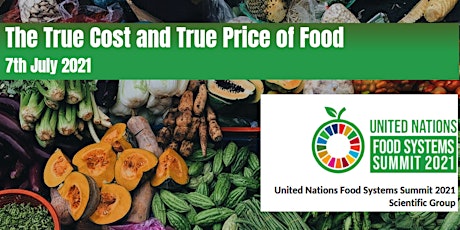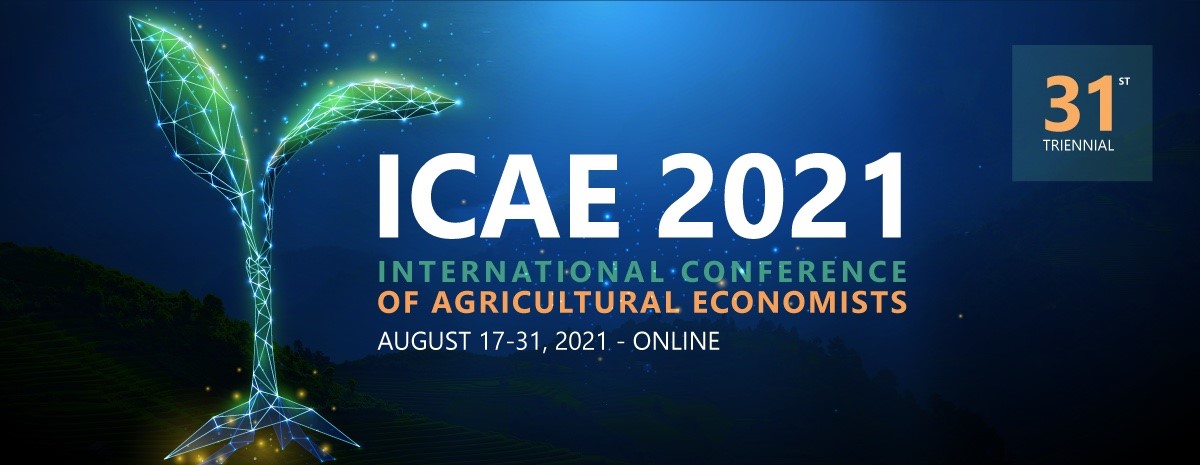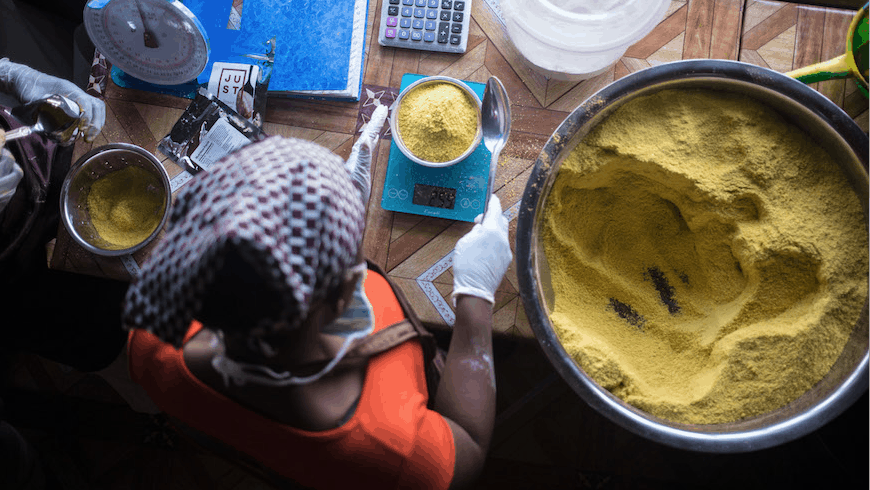This session elaborated on the true costs of the global food system, how true pricing can address those costs and the scientific challenges involved in doing so.
- how science can help governments and businesses in a True Pricing Science Network.
- how the value of food can be redefined and how in the long run true pricing mechanisms can ensure that affordable and healthy food is accessible to all while conserving the environment.
Members of the True Cost and True Price of Food working group of the Scientific Group are hosting this session and took the initiative to convene a True Pricing Science Network (as part of a partnership on the true price of food). This will further the basic and applied science progress needed to apply true pricing at scale by policy makers, businesses and consumers.
- Opening remarks – Joachim von Braun
- The true costs and true price of food – Sheryl Hendriks, Adrian de Groot Ruiz
- Quantifying and valuing externalities: state of the art and key challenges – Mario Herrero, Pietro Galgani
- Food-based poverty lines and safety nets for affordability of healthy diets – Elena Martinez
- True Pricing policy mechanisms - Adrian de Groot Ruiz
- Towards a True Pricing Science Network – Sheryl Hendriks
Resource:
The true cost and true price of food (42 pp. A paper from the Scientific Group of the UN Food Systems
Summit Draft 1 June 2021
Summit Draft 1 June 2021
The first step to correct for these ‘hidden costs’ is to redefine the
value of food through True Cost Accounting (TCA) to address externalities and other market
failures. TCA reveals the true value of food by making the benefits of affordable and healthy
food visible and revealing the costs of damage to the environment and human health. The
second corrective step is true pricing: incorporating externalities in prices to align market
incentives with social values. Appropriate safety nets to boost consumer purchasing power
and the enforcement of rights and regulations should also be part of true pricing to ensure
that affordable and healthy food is accessible to all. Such actions will conserve the
environment and simultaneously meet fundamental universal human rights and accelerate
progress towards achieving development goals
========================================================
7 July 2021. Side event to the Science Days for the UN Food Systems Summit. Food prices and the economics of food system transformation: Making markets work for inclusive growth, sustainability, and health. by the International Association of Agricultural Economists (IAAE), the African Agricultural Economics Association (AAAE), and the Food Prices for Nutrition project at Tufts University
This event addressed the economics of food system transformation. The focus was prices and markets, and how food supply interacts with demand under the influence of policies and programs, environmental change, and technological innovation. It linked economists in universities, governments, and civil society with practitioners in other disciplines and institutions to drive food system change.
- Dr. Uma Lele, President of the International Association of Agricultural Economists
- Dr. Guy Blaise Nkamleu, President of the African Association of Agricultural Economists
- Dr. J.V. Meenakshi, Professor, Delhi School of Economics, University of Delhi, India
- Dr. Daniel Sarpong, Associate Professor and Dean, School of Agriculture, University of Ghana

- Dr. Anna Herforth, Co-Principal Investigator, Food Prices for Nutrition project at Tufts University
- Dr. Will Masters, Professor, Tufts University and Principal Investigator, Food Prices for Nutrition project, USA
Shared resources:
Uma Lele, Manmohan Agarwal, Brian C. Baldwin, and Sambuddha Goswami (2021) Food for All. International Organizations and the Transformation of Agriculture 1,024 pp.- It is an open access book --free for all and discusses impacts of conflict on food insecurity-Book being released in August/September
- This volume provides an analysis of the structure, coordination, and management of the Food and Agriculture Organization of the United Nations (FAO), the International Fund for Agricultural Development (IFAD), and the World Food Programme (WFP).
- It also looks at the World Bank, the largest international funder of policy advice and investment projects, and CGIAR, a leading funder of international agricultural research.
- It provides a fresh perspective and innovative ideas on one of the most significant challenges faced by humanity in a time of climate and health emergencies
- It presents a comprehensive analysis of the main global food and agricultural international organizations
- It assesses the current state of food security in the context of trends over the last 50 years
17-31 August 2021. The Board of IAAE moved the August 2021 International Conference of Agricultural Economists (ICAE) to a fully-online format. This extended period is to accommodate delegates from diverse time zones. Further announcements on the conference format will follow.
Example of poor accessing nutritious food
Liberian businesses buy the ingredients, source the equipment, and manage the day-to-day operations of the value chain, working with one another to set price points, create new flavors of Power Gari, and manage other elements of the production and sales processes. Good quality crops are sourced from female smallholder farmers across Liberia, and then mixed by JUST’s primary small business partner, Kawadah Farms, at their production facility in northern Liberia.
One of the hand-cranked mixing machines – which are designed by JUST, but built and sold by Liberian machinists – can produce 30 metric tons of Power Gari a month, enough for 600,000 meals. Additional production lines could be built in different parts of Liberia within a few weeks and with a couple thousand dollars of renovations.
And the cost of one of the mixing machines that Kawadah uses? Not $200,000 but $850. This equipment is made by Liberian machinists using locally available steel 45 minutes down the road from Kawadah’s production facility.







No comments:
Post a Comment